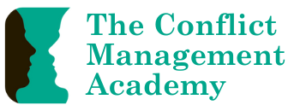I honestly cannot say enough about this book. This book is ESSENTIAL reading for anyone working in the conflict space.
There is a lot of current interest in topics like trauma-informed practice, neurodiversity, difficult people, high conflict personalities and mental health. This book cuts through the often misguided popular culture and easy fixes and gets to the heart of diversity and inclusion in a meaningful and achievable way.
In this book, Dan helps us to confront the biases and assumptions that we all have (often subconsciously) about mental health and mental illness, especially in relation to our ideas about the capacity of individuals to participate in our processes. He makes the fundamentally important point that we do not need to know, nor should we assume, that any individual we meet does or does not have a mental illness. Nor should we be attempting (explicitly or privately) to assess someone else’s mental health status. Dan points out that this actually violates our core values of impartiality and self-determination. He explains:
“It is not fair because the conflict resolver is forming a bias based on their private assessment of the party’s mental health situation, and they are letting that bias influence the conflict resolution process. This approach also violates self-determination because it is done without the client’s knowledge or buy-in. In other words, the client did not come seeking the mental health profile, and therefore it was done against their will. People who perform these kinds of behind-the-scenes profiling and process changes typically have good intentions. They want to provide the best service to their clients and to meet their needs. Unfortunately, their desire to do so leads them to forget that it is not their role to provide these services. It is not appropriate for conflict resolvers to become paternalistic and offer a process they believe is especially good for a certain kind of health dynamic.”
Dan explains how many of our ‘screening’ policies, and guidelines about how to ‘manage’ people with mental health concerns, while possibly well-meaning, are actually discriminatory. Discrimination, he reminds us, occurs when one person receives different treatment than another based on the perception that the person belongs to a different category of people (e.g. based on having a disability such as a mental health condition).
Dan persuasively argues for a much better way to work with people who are engaging in challenging behaviours, that does not require any diagnosis or label-focused process adaptations. Essentially, Dan supports a conflict resolution process based on universal design – that is, a process that provides the same respect and choices to all parties involved. Practitioners can focus on specific behaviours that may be problematic, and have clear and objective response plans, prepared in advance, that are applied whenever anyone engages in those behaviours.
“As practitioners, we don’t need to guess about who might need special help – rather we should provide support opportunities to all parties in a conflict. We can use universal design frameworks to make our processes accessible and supportive to everyone, all without requiring anyone to disclose any mental health needs, or us having to guess at who needs what…We manage challenging behaviours impartially – basing our response on the behaviour, not our assumptions about what might be causing it.”
He continues:
“Best practices are to develop specific behavioural criteria with which to make decisions about when it is appropriate to make process adjustments, terminate the conflict, or treat the situation as a health emergency. Offer support universally without profiling based on mental health, and respond to observed behaviours rather than guessing connections to mental health.”
The book provides very helpful questions for practitioners to reflect on their own biases and practices, handy “take away” sections at the end of each chapter, and which are collated at the end of the book. There are also numerous checklists, case studies and personal examples, sample guidelines, suggested questions and responses to use with clients who disclose a mental health need, and an example of Dan’s usual mediator opening.
This book is essential reading for anyone working in the field of conflict resolution – and in fact everyone outside of that field as well. As Dan says, “There is no such thing as treating anyone with too much dignity.”

